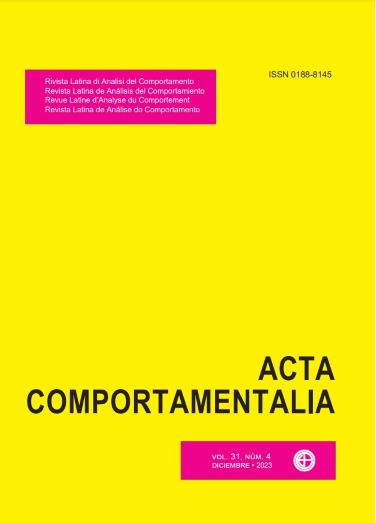Effects of interaction history on the establishment of reciprocity
DOI:
https://doi.org/10.32870/ac.v31i4.87205Keywords:
reciprocity, prosociality, aggression, social interactions, interpersonal interactionsAbstract
Reciprocal interactions seem to be fundamental for the establishment of social relationships and interindividual interactions (Ávila-Hernández, 2017; Ávila-Hernández y Pulido-Ávalos, 2018; Pulido et al., 2015; Pulido et al., 2016; Rangel et al., 2015; Rangel, 2016; Ribes et al., 2010; Ribes y Pulido, 2015), so it becomes necessary to analyze the conditions under which they are established and the variables that modulate them. The present study evaluated the effect of the interaction history, created through the experimental task, on the establishment of reciprocal episodes in dyadic interactions. The results showed a differential effect of the type of interaction history not only on the establishment, but also on the pattern of interaction through which reciprocity was established, as well as on the type of reciprocity involved (aggressive or prosocial). This is discussed in terms of the functional role of interaction history and the variables and parametric variations of these that modulate reciprocal interactions.
Downloads
Downloads
Published
How to Cite
Issue
Section
License

<a rel="license" href="http://creativecommons.org/licenses/by-nc-sa/4.0/"><img alt="Licencia de Creative Commons" style="border-width:0" src="https://i.creativecommons.org/l/by-nc-sa/4.0/88x31.png" /></a><br />Este obra está bajo una <a rel="license" href="http://creativecommons.org/licenses/by-nc-sa/4.0/">licencia de Creative Commons Reconocimiento-NoComercial-CompartirIgual 4.0 Internacional</a>.






